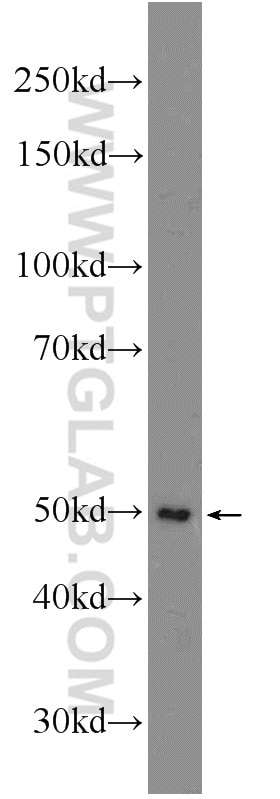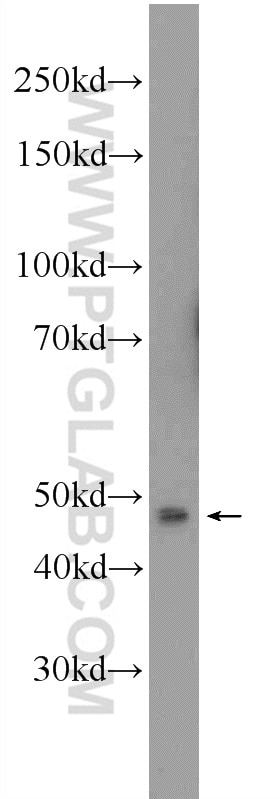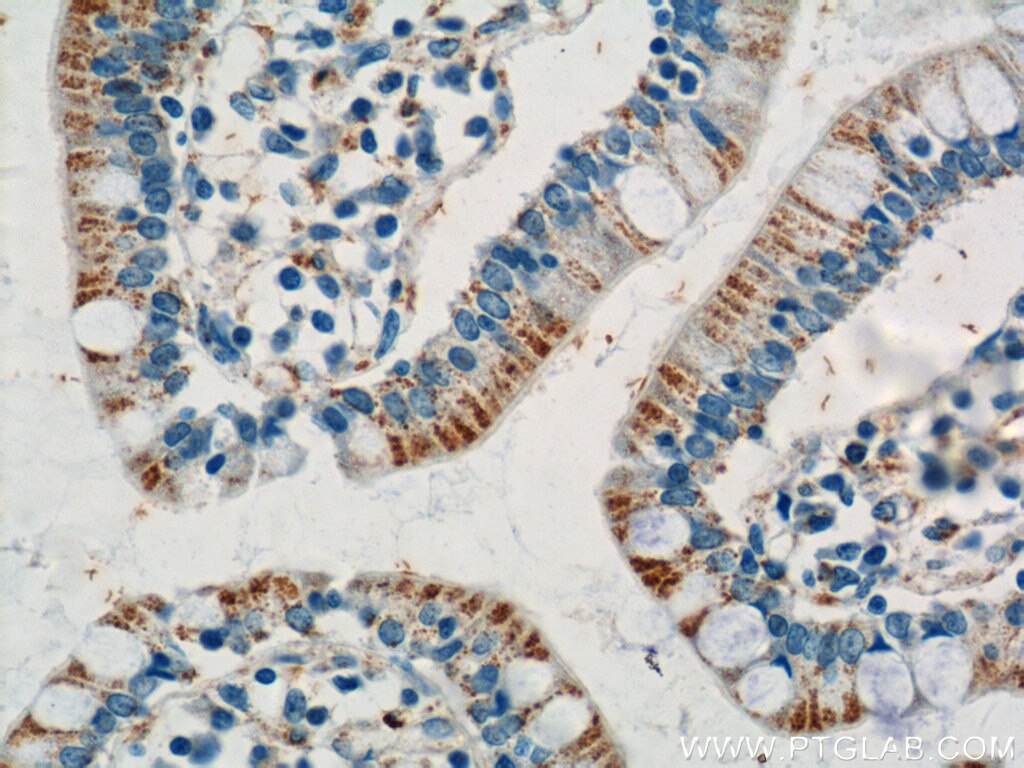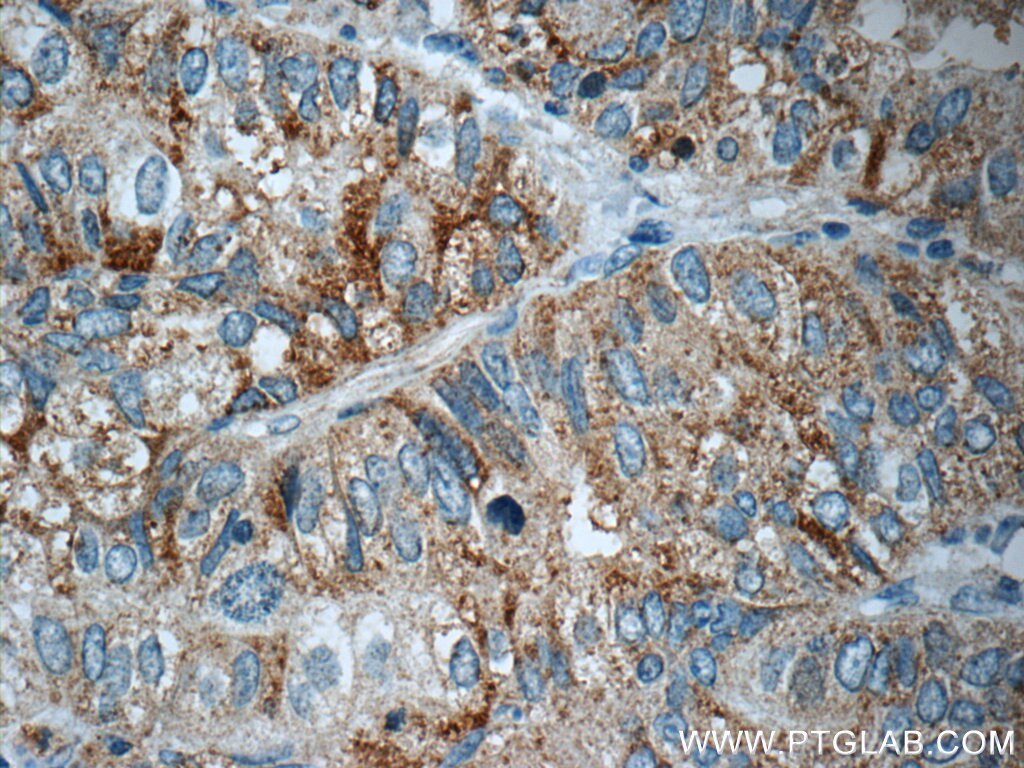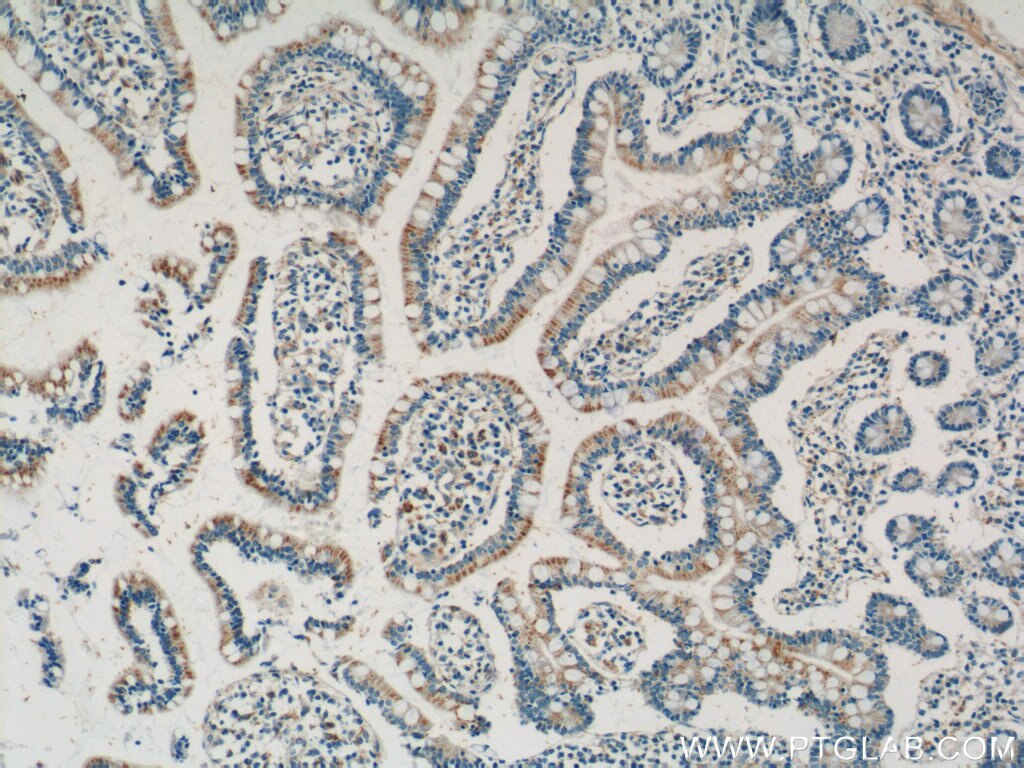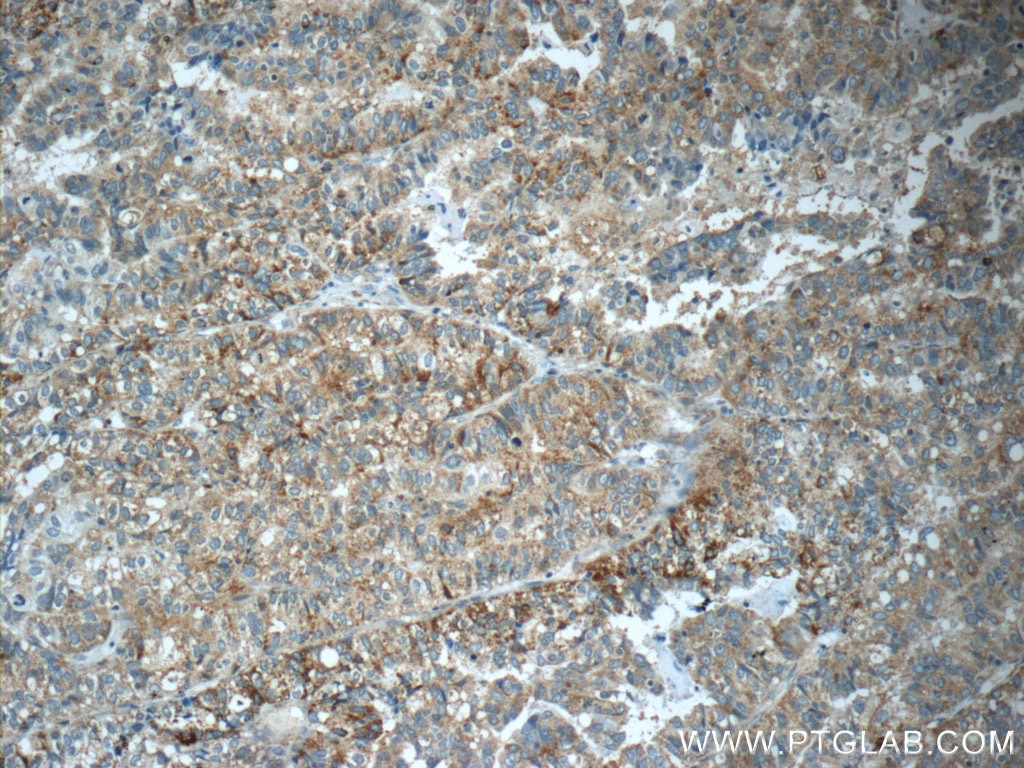ANKRD13D Polyclonal antibody
ANKRD13D Polyclonal Antibody for IHC, WB,ELISA
Host / Isotype
Rabbit / IgG
Reactivity
human
Applications
WB, IHC,ELISA
Conjugate
Unconjugated
Cat no : 21100-1-AP
Synonyms
Validation Data Gallery
Tested Applications
| Positive WB detected in | Jurkat cells, HT-1080 cells |
| Positive IHC detected in | human small intestine tissue, human breast cancer tissue Note: suggested antigen retrieval with TE buffer pH 9.0; (*) Alternatively, antigen retrieval may be performed with citrate buffer pH 6.0 |
Recommended dilution
| Application | Dilution |
|---|---|
| Western Blot (WB) | WB : 1:200-1:1000 |
| Immunohistochemistry (IHC) | IHC : 1:20-1:200 |
| Sample-dependent, check data in validation data gallery | |
Product Information
The immunogen of 21100-1-AP is ANKRD13D Fusion Protein expressed in E. coli.
| Tested Reactivity | human |
| Host / Isotype | Rabbit / IgG |
| Class | Polyclonal |
| Type | Antibody |
| Immunogen | ANKRD13D fusion protein Ag15369 相同性解析による交差性が予測される生物種 |
| Full Name | ankyrin repeat domain 13 family, member D |
| Calculated molecular weight | 605 aa, 68 kDa |
| Observed molecular weight | 50 kDa |
| GenBank accession number | BC110419 |
| Gene symbol | ANKRD13D |
| Gene ID (NCBI) | 338692 |
| RRID | AB_2878813 |
| Conjugate | Unconjugated |
| Form | Liquid |
| Purification Method | Antigen affinity purification |
| Storage Buffer | PBS with 0.02% sodium azide and 50% glycerol pH 7.3. |
| Storage Conditions | Store at -20°C. Stable for one year after shipment. Aliquoting is unnecessary for -20oC storage. |
Background Information
ANKRD13D, also named as Ankyrin repeat domain-containing protein 13D, is a 518 amino acid protein, which contains 4 UIM (ubiquitin-interacting motif) repeats. ANKRD13D localizes in the cell membrane and late endosome. ANKRD13D as a ubiquitin-binding protein that specifically recognizes and binds 'Lys-63'-linked ubiquitin. The calculated molecular weight of ANKRD13D is 58kDa, but we decteted a 50kDa protein via western blot. experiment.
Protocols
| Product Specific Protocols | |
|---|---|
| WB protocol for ANKRD13D antibody 21100-1-AP | Download protocol |
| IHC protocol for ANKRD13D antibody 21100-1-AP | Download protocol |
| Standard Protocols | |
|---|---|
| Click here to view our Standard Protocols |
